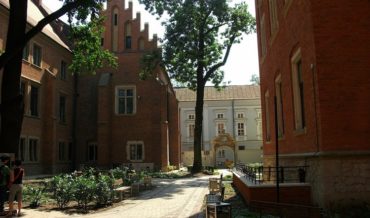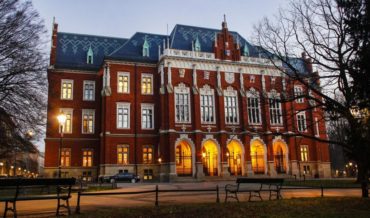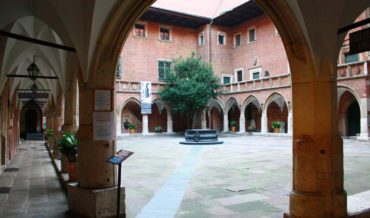Contents
Key Facts
- Born in Lviv in 1749, died in Kraków in 1809
- Leading Polish mineralogist and chemist during the Enlightenment period
- Multi-disciplinary scholar: botanist, physician, chemist, and theologian
- Professor at the Main Crown School (predecessor of Jagiellonian University)
- Pioneer of Polish coal mining and conducted first hard coal coking experiments in Poland
- Director of the Botanical Garden in Kraków
- Co-organizer of Poland's first balloon flight demonstration
- Established significant mineralogical collections at Jagiellonian University
Early Life and Education
Jan Jaśkiewicz exemplified the Enlightenment ideal of a universal scholar, combining expertise in natural sciences with practical applications. Born in Lviv in 1749 during the height of the Polish-Lithuanian Commonwealth, he emerged from a region renowned as an important center of learning and cultural exchange. His foundational education likely occurred in Jesuit institutions, which maintained Europe's highest academic standards and emphasized both classical humanities and emerging natural sciences.
Jaśkiewicz pursued advanced medical studies in Vienna, strategically choosing one of 18th-century Europe's most prestigious centers for medical education. The University of Vienna's medical faculty led European developments in anatomy, surgery, and natural philosophy, providing him with rigorous training in empirical scientific methodology. This educational experience in the Habsburg capital immersed him in cutting-edge Enlightenment thinking and established his lifelong commitment to evidence-based investigation.
Academic Career in Kraków
Upon completing his Vienna education, Jaśkiewicz relocated to Kraków and assumed a prominent position at the Main Crown School, the historic precursor to today's Jagiellonian University. This venerable institution, established in 1364 as one of Europe's oldest universities, was undergoing comprehensive Enlightenment-era reforms that prioritized natural sciences and practical knowledge over purely theoretical studies.
As a professor, Jaśkiewicz taught natural history and chemistry—disciplines gaining unprecedented importance in European university curricula. His specialization in mining and metallurgy addressed Poland's critical economic development needs during a period of increasing industrial competition. Contemporary accounts describe his lectures as masterfully combining theoretical foundations with practical applications, embodying the Enlightenment principle that knowledge should serve human progress.
European Scientific Networks
Rather than working in isolation, Jaśkiewicz actively participated in Europe's interconnected scientific community. He conducted extensive research expeditions to Italy, Austria, and France, systematically visiting leading universities, experimental laboratories, and advanced mining operations. These scholarly journeys enabled him to study the latest developments in mineralogy, chemistry, and extractive metallurgy, subsequently introducing these innovations to Polish academic and industrial contexts.
During his travels, he likely studied at the prestigious mining academies in Freiberg (Saxony) and Banská Štiavnica (then Schemnitz, Hungary), institutions that set European standards for geological and metallurgical education. His visits to Parisian chemical laboratories occurred during Antoine Lavoisier's revolutionary transformation of chemistry from alchemy-influenced traditions to modern scientific methodology. These experiences profoundly shaped his approach to research and instruction at Jagiellonian University.
Major Scientific and Industrial Contributions
Medical Education Modernization
Jaśkiewicz implemented comprehensive reforms in medical education organization and clinical practice at the university, transitioning from medieval scholastic methods to empirical, observation-based instruction. His modernization efforts included establishing and equipping advanced research laboratories, ensuring students accessed proper scientific instruments and experimental facilities. This infrastructure development positioned Polish medical education within European scientific mainstream rather than relying on outdated theoretical frameworks.
Mineralogical Research and Collections
Jaśkiewicz systematically developed and expanded mineralogical collections at Jagiellonian University, creating resources that served both pedagogical and research functions. His methodical approach to specimen acquisition, cataloging, and scientific analysis established mineralogy as a legitimate scientific discipline within Polish academia. The collection protocols he developed became models for other Central European institutions.
The mineralogical collection under his supervision grew into one of Central Europe's most comprehensive repositories, attracting researchers from across the Habsburg Empire and German states. This collection provided the foundation for subsequent generations of Polish geological research and natural resource exploration.
Botanical Garden Leadership
Demonstrating remarkable interdisciplinary versatility, Jaśkiewicz assumed organizational responsibility and directorship of the Botanical Garden, transforming it into a multifunctional scientific institution. The garden operated simultaneously as a research facility for systematic botanical studies, a practical training environment for students, and an experimental center for testing economically valuable plant cultivation techniques.
Under his leadership, the garden's collections expanded to encompass both native Polish flora and exotic species from global botanical networks. This work advanced the broader Enlightenment project of systematic natural world documentation while providing practical agricultural benefits to the local community.
Industrial Innovation and Mining Development
Jaśkiewicz's most economically significant contribution involved pioneering work in mining technology and metallurgy. He undertook the technically challenging project of creating detailed geological maps of coal deposits near Siewierz, requiring integration of geological knowledge, surveying expertise, and practical mining experience. This cartographic work proved essential for developing Poland's emerging coal mining industry and metallurgical production capabilities.
His most groundbreaking achievement was conducting Poland's first successful hard coal coking experiments. The coking process—heating coal in oxygen-free environments to produce coke—was essential for efficient iron smelting and represented a critical technological leap toward industrial modernization. While coking techniques were already established in Britain and parts of Germany, Jaśkiewicz's successful adaptation of these methods to Polish geological conditions and available resources marked a significant milestone in Polish industrial development.
Early Aviation Contributions
Reflecting his engagement with contemporary scientific innovations, Jaśkiewicz participated in organizing Poland's first balloon flight demonstration. This event, inspired by the Montgolfier brothers' pioneering French flights, embodied the Enlightenment spirit of scientific experimentation and public education. Such activities demonstrated how Polish scholars remained connected to European scientific developments despite political challenges facing the Commonwealth.
Historical Impact and Legacy
Jan Jaśkiewicz died in Kraków in 1809, concluding a remarkable career as one of Poland's most influential Enlightenment-era scientists and educators. His interdisciplinary expertise and practical orientation established crucial connections between traditional academic scholarship and emerging modern scientific methods.
His institutional development work, curriculum modernization efforts, and industrial innovation provided foundations for Poland's participation in 19th-century scientific and technological advancement. The academic programs and research collections he established continued influencing Polish scientific development throughout subsequent decades of political upheaval.
Long-term Scientific Influence
Jaśkiewicz's contributions extended beyond immediate practical achievements through his role in training the next generation of Polish scientists and educators. His emphasis on combining theoretical knowledge with practical applications established methodological traditions that proved valuable for addressing Poland's developmental challenges throughout the 19th and early 20th centuries.
His career exemplified the Enlightenment ideal of scholarly activity as a means of contributing to human progress through systematic natural world investigation and knowledge application to societal problems. Within the context of 18th-century Poland—facing significant political pressures and economic challenges—such contributions proved particularly valuable for maintaining intellectual continuity and preparing for eventual national revival.
References and Sources
- Rybicka, Józef. Historia naturalistów polskich (History of Polish Naturalists). Kraków: Nakład Akademii Umiejętności, 1888.
- Skalski, Adam W. "Początki geologii w Polsce" (Beginnings of Geology in Poland). Przegląd Geologiczny 45, no. 8 (1997): 789-794.
- Estreicher, Stanisław. Bibliografia polska XIX wieku (Polish Bibliography of the 19th Century). Vol. 2. Kraków: Akademia Umiejętności, 1874.
- Archiwum Uniwersytetu Jagiellońskiego (Jagiellonian University Archives). Series: Faculty of Medicine records, 1780-1810.
- Alexandrowicz, Stefan W. "Jan Jaśkiewicz i początki badań mineralogicznych na Uniwersytecie Jagiellońskim" (Jan Jaśkiewicz and the Beginnings of Mineralogical Research at Jagiellonian University). Studia Historiae Scientiarum 12 (2013): 145-168.


